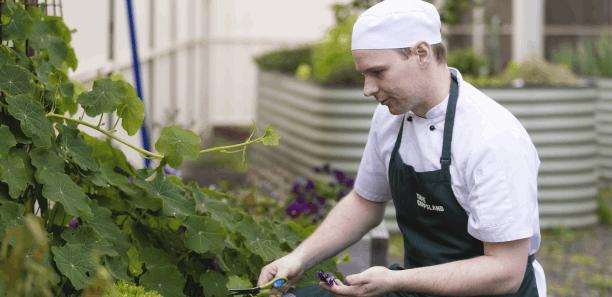
In today’s world, there are so many options for you as a student to consider, with TAFE and university being just two of them.
All these options often can leave you feeling confused and unsure of the differences between all your choices – that’s why, in this article, we’ll explore how TAFE differs from university to help you decide on your future pathway.
In a nutshell
TAFE and university differ in several ways. TAFE focuses on vocational courses, such as engineering or nursing, while universities offer more traditionally academic subjects like law or history.
Also, the structures of TAFE and university differ in the courses they offer, their assessment methods, teaching approaches and levels.
Let’s explore more…
Their approach
Both TAFE and university facilitate learning, however, the way in which they do so differs widely.
TAFE provides a more hands-on and classroom-based approach, and the learning tends to be more active, involved and practical.
When put into practice, this means that when you attend TAFE, your class will be smaller. You’ll be monitored and helped along, and you can feel free to ask questions as you go. This makes the transition from high school easy, as high school also tends to be organised in this format.
University, on the other hand, can be a lot less personalised. You may have less contact hours, and so the way you study is largely self-managed. You are expected to do a lot more independent study than you would at TAFE, and you have to be responsible for maintaining your attendance requirements.

Study options
TAFE also differs from university in terms of study matter. TAFE offers many practical and creative subjects that universities may not. For example, in TAFE you may be able to immediately specialise in your chosen field. Instead of receiving a Bachelor of Arts at university, you can study through TAFE to receive a Certificate in Professional Writing and Editing, which can help you get on your path sooner.
TAFE also offers a multitude of different options in terms of the certificates received. At a TAFE, you can study towards a diploma, certificate or other postgraduate studies, whereas most universities offer mainly bachelor degrees.
The staff at TAFE are also more likely to help you come up with a personalised plan of where you would like to go with your study, whereas at university, it may feel like every person has to work out their own choices themselves.
Course length
The length of courses at TAFE often vary to those at universities. In university, courses tend to take three to four years to complete, whereas in TAFE, they can range anywhere from six months to three years.
This presents an appealing option to many students, as it means that they can be out in the working world sooner, rather than later.
Price
Another significant difference between the two is price. A university degree can cost you anywhere between $18,000 to $25,000, whereas a TAFE certificate can cost between $100 to $10,000.
Although this may seem like a lot, TAFEs are also more likely to provide scholarships and fee reductions than universities do. Check our Fees and Fee Assistance page or Scholarships page on our website for more information.

Hesitant about studying at TAFE? Don’t be!
We believe that education changes people’s lives and we pride ourselves of giving students the relevant skills to find a career they’ll love.
Here are some reasons why TAFE is a viable option:
- You can study close to home, where parking is free. Put your gold coins away because there’s not a parking meter in sight at any of our campuses.
- Earn while you learn. Studying an apprenticeship or a traineeship allows you to earn an income while you study.
- You’ll be more employable. TAFE allows you to develop non-technical skills including communication, teamwork and problem solving. All these skills can be applied across different jobs and industries throughout your career.
- Studying at TAFE can be cost effective so you can pay off over time. Like uni, TAFE offers payment plans which means you can pay your fees off while you study.
- It’s a flexibly way to learn. Study online, part-time, full-time, face-to-face, online or in the workplace. Whatever your circumstances, TAFE has a solution for you.
- You’ll be taught by people who really know their stuff – your teachers will have current industry experience and classes are small so you can get to know the people you’re studying with.
- With campuses scattered throughout Gippsland, you won’t have to leave home and move to the city if you don’t want to.
- Last but not least, you don’t need an ATAR to study at TAFE.
Questions?
Each individual and situation is different, and at TAFE Gippsland, we understand and cater for that. If you have any questions about TAFE and studying with us, or if you would like to discuss your situation, feel free to contact us and we will be happy to assist you.